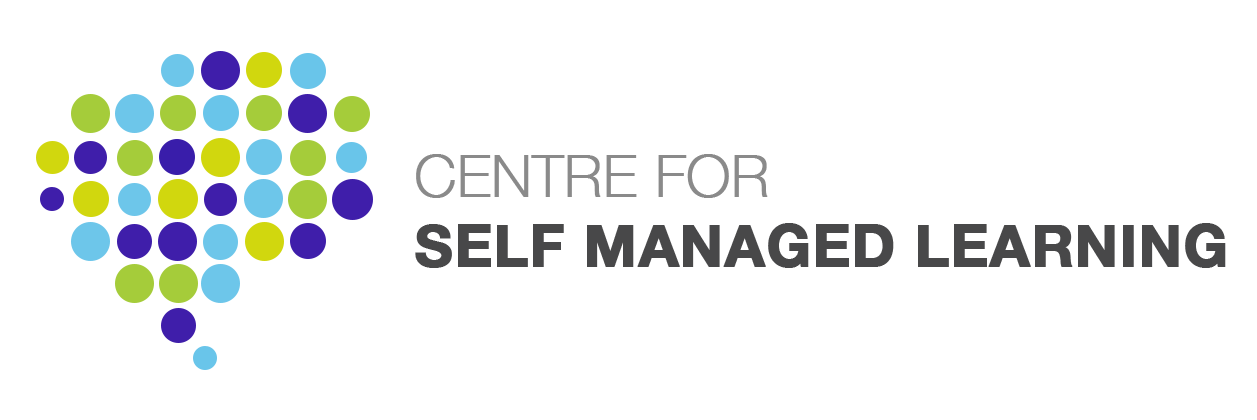St Lukes School is a Church of England Voluntary Aided Comprehensive School based in Portsmouth for students, aged from 11 to 16. It serves an inner city area with high deprivation indices – for example a high number of special needs children and a high proportion on free school meals.
Two members of the St Lukes staff attended a seminar given by Ian Cunningham, Graham Dawes and Anne Gimson from Self Managed Learning College (working in collaboration with the University of Sussex). It was aimed to introduce the concept of Self Managed Learning (SML) to primary and secondary schools in the Portsmouth area as part of the “Portsmouth Learning Community Project”.
Setting up the Programme
After attending the seminar, St Lukes decided to pilot the process for a mixed gender group of six year 10 students. The potential participants chosen were seen as students who could achieve more and perceived as perhaps lacking in confidence.
“I feel like I’ve got more confident and i’ve learnt that you don’t really learn things just from being in school – you can learn from going out and doing things”
“I’m more confident around other people and like in the group I felt more comfortable than I thought I could be.”
A Learning Assistant for year 10 was keen to adopt the role of co-adviser to the group to learn about the process working alongside Anne Gimson from the Centre for Self Managed Learning. This was to ensure a transfer of skills to someone within St Lukes so that they could take the process forward in the future. Meetings were held with members of the St Lukes team to further explain SML and set up the programme, including logistics.
Invitations were then sent out to the six nominated students, following which one to one meetings were held with them and their parents/carers. This enabled the students to decide whether this was something they wanted to volunteer for and gave parents/carers information and an opportunity to ask any questions. All six nominated students were keen to be a part of the programme and the parents were supportive of the idea.
The Process
At the first meeting, one student was not at school due to illness and the decision was taken to proceed as a group of 5. The group set their own ground rules about how they wanted to work together and also agreed how they would deal with any incidents of the ground rules being broken. They began to draft their Learning Agreements which they completed over the following two meetings.
They met once a fortnight for 2 hours over 1 ½ terms, holding 9 learning group meetings in total.
“[The learning group was about] Being able to do something that you wanted to do rather than you had to do in school jsut for once. They way, like, we all got to do our own thing, but we got to do it together as well.”
“You had the freedom to do your own thing and have a coice on what you anted to do but it was still qutie structured.”
Each student set themselves between 3 and 5 learning goals and focussed on both the short and long term. Short term examples were around improving existing relationships or improving fitness levels through to longer term aims of learning more about possible future careers.
“Hardest bit was actually getting to know what you wanted to do – you know, making it clear in your mind.”
The students initially found the process of needing to listen to each other very difficult, but they improved greatly over the life of the group. They revisited the sanctions for breaching ground rules half way through the programme, imposing more stringent consequences on themselves – eg “three strikes and you’re out” which meant having to return to class for that one meeting.
“What have I learned – most importantly how to work with people I sometimes have an argument with.”
They used a variety of learning methods to achieve their learning goals including:
- Visits to find out about the world of work – eg pet shop, police station, local football club
- Inviting in people to ask them questions about their careers – eg graphic designer
- Research on the internet – eg what qualifications are needed for particular roles
- Reading
The group responded positively to an opportunity to share their experiences with others at a national conference that cropped up towards the end of the life of the group and, when it transpired that it clashed with their Trident work experience week, took the initiative to create a short DVD of their views on the process to be shown at the conference. The school and parents were happy to approve their idea. Responses from the attendees at the conference were extremely positive with one person suggesting that all newly qualified teachers would benefit from hearing the students views.
“We’ve been able to do and show everyone that we aren’t just kids – we’re not going to trash everything – we can actually be trusted to do something.”
“I feel I’ve got more brave ‘cause I wouldn’t really have thought coming and doing a video to show people what we have been doing.”
Co-Advising
The College advisor worked closely with the school’s co-adviser, previewing and reviewing each meeting and ensuring a gradual hand-over to them in taking more of the lead in holding the structure and assisting the group.
Key reflections from the co-advisor on the challenges she faced and overcame were:
- Not being the teacher/boss/adult in charge!
- Giving sufficient time to preparation and planning
- Creating/maintaining a boundary between my role in the Learning Group and my role as Behaviour Support
- Influencing the system to create the space for a group that was not a normal class size
She reported the following as being the ‘best bits’ for her in learning about the SML process:
- Building trust and relationships with the students:
- Really getting to know the students
- Seeing the students get to know and begin to respect each other
- Seeing attendance at the group go up
- Seeing the students enthusiasm increase
- Seeing the students realise learning is about living and living is about learning
Challenges for the group
The following were particular challenges that the group faced and were commented upon by the students in their DVD:
- Having a dedicated room available
- Avoiding/minimising interruptions from staff and other students
- Listening to one another
The Results
The students worked extremely hard to put together a variety of ways to present their achievements back to relevant staff members at St Lukes and their parents. They planned the event as a group with each participant deciding how they wanted to share their learning. Methods chosen included 2 visual displays, a booklet and 2 power point presentations. The presentations were received with enthusiasm from both parents and staff and the students were warmly congratulated on their achievements.
All the students highly recommended the SML process for others and are interested in continuing themselves, as well as offering themselvs as mentors to other students who participate in future programmes.
“I’ve benefitted ‘cause I now know in my heart of hearts I want to do animal care.”
“We’re not just kids from St. Lukes that do nothing. We actually do wanna do something – we do want a career.”

